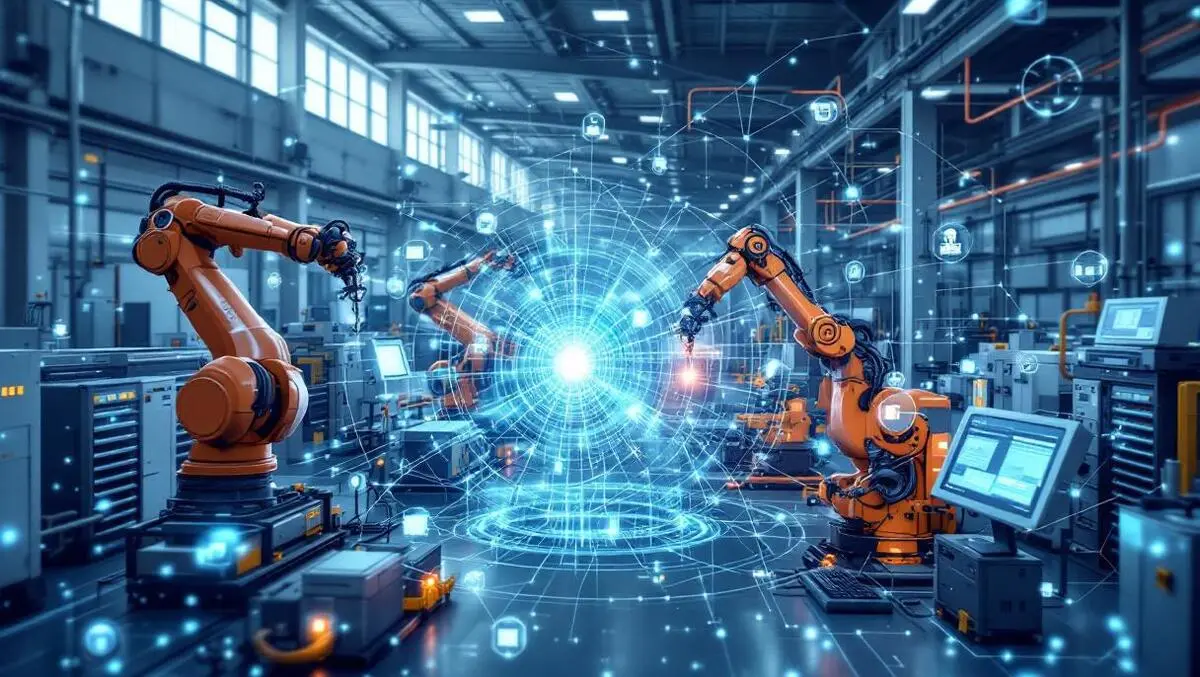
AI & edge technologies top Hannover Messe 2025 trends
New research from IoT Analytics highlights the top ten industrial technology trends observed at Hannover Messe 2025.
IoT Analytics' latest report, based on comprehensive analysis at Hannover Messe 2025, has identified the principal trends influencing the industrial technology landscape. This 111-page research document offers in-depth insights into the state and future direction of industrial automation, driven extensively by the integration of artificial intelligence and advanced digital operations.
The prominence of generative artificial intelligence within industrial software was a notable theme, with businesses embedding these capabilities into their digital platforms and manufacturing workflows. The evaluation notes that agentic AI—technology capable of taking actions autonomously—has begun to emerge, though it remains at an early stage of development and adoption.
Edge technology also featured strongly among the key trends. Developments in edge-native design are enabling faster, more efficient data processing outside centralised cloud environments, contributing to greater responsiveness and improved operational security within industrial settings.
IoT Analytics identifies DataOps platforms as seeing increasing demand, with their role expanding up the technology stack. DataOps helps industrial companies better manage, integrate and operationalise their rapidly growing data resources, aligning collection, processing and insight generation with business objectives.
Another important development is the use of digital threads—connected digital records of a product's lifecycle—augmented by artificial intelligence. These are transforming design and engineering practices, allowing greater traceability and optimised decision-making throughout asset and production cycles.
Sensors and predictive maintenance are now more tightly integrated. The report observes a shift toward sensor-centric predictive maintenance systems, which are expanding into previously overlooked equipment asset classes, aiming to minimise downtime and enhance reliability.
The demand for private 5G networks across industry has risen, driven by the need for secure, scalable and reliable connectivity. However, IoT Analytics notes that integration remains a significant barrier for many organisations, slowing widespread adoption despite clear interest and value.
Sustainability efforts are evolving as companies introduce AI frameworks and platforms to track, manage and reduce environmental impact. Artificial intelligence is enabling more targeted approaches and generating actionable sustainability insights for manufacturers and industrial operators.
The concept of cognition in robotics is also advancing, with digital twins evolving from static virtual replicas to more dynamic, real-time industrial copilots. These AI-powered tools facilitate adaptive simulations, process planning and augmented production support on the factory floor.
"Industrial AI, edge-native architectures, and data-centric operations are the defining industrial technology trends in 2025. In our conversations with dozens of industrial tech vendors, most notably at Hannover Messe 2025, it has become clear that AI now dominates the industrial agenda. Vendors are racing to show meaningful progress, with many already moving beyond generative AI toward agentic workflows and more autonomous systems," Knud Lasse Lueth, Chief Executive Officer at IoT Analytics, said, providing perspective on these findings.
"AI is transforming every layer of the industrial technology stack — spanning edge, dataops, software solutions, and cloud. It was clear from Hannover Messe 2025 that every major industrial player is placing bets on AI—not just as an enhancement but as the engine room of their manufacturing strategy. This included applications ranging from copilots and industrial foundation models to AI-native edge stacks and digital twins. However, to unlock the next wave of value from AI, industrial companies must move beyond basic AI assistants and focus towards deeper integration across the technology stack and develop industry-focused AI solutions," Harsha Anand, Senior Analyst at IoT Analytics, stated, expanding on the role of artificial intelligence throughout the sector.
IoT Analytics reported an increased presence of edge technologies, DataOps applications, and AI-centred solutions at Hannover Messe, with many organisations demonstrating their current solutions in these areas for the first time. The research also highlights increasing collaboration within the technology ecosystem, as companies seek to accelerate industrial automation progress through partnership and knowledge sharing.
The IoT Analytics team, comprised of 20 analysts onsite, collected data and conducted interviews to assess these trends and benchmark them across vendors and sectors. Their event report includes 34 detailed insights and 118 topic or vendor-specific examples, as observed during the event.
The identified trends point towards a growing reliance on artificial intelligence as a fundamental operational component as manufacturers and industrial technology providers navigate new strategies for production, asset management, and process optimisation.


